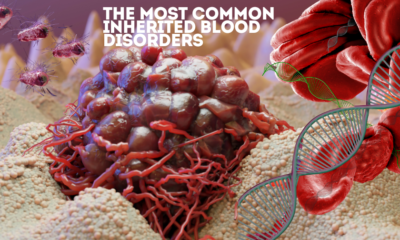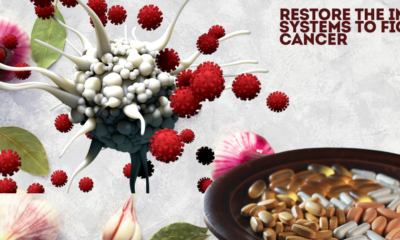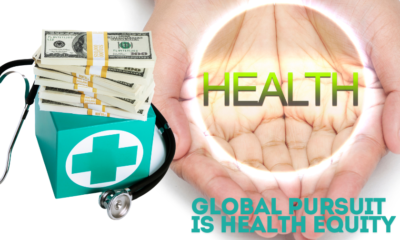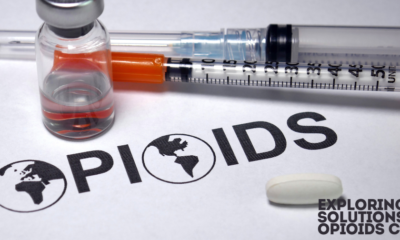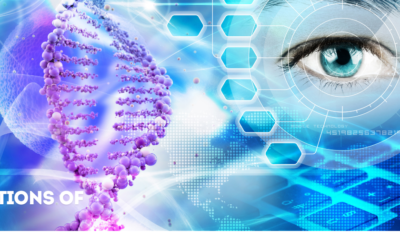Parenting
Nutrition in Pregnancy: What to Eat for a Healthy Baby
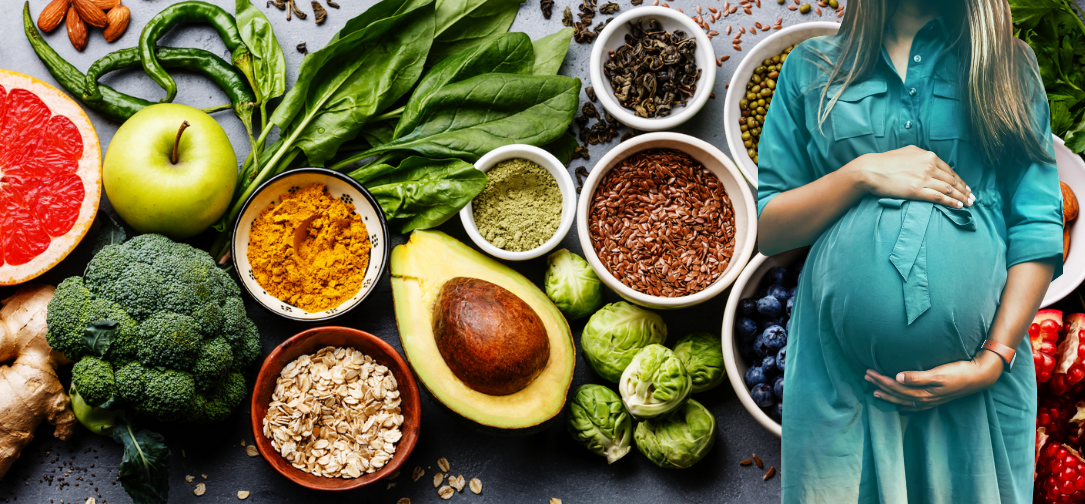
Pregnancy is a life-altering journey for a woman, and proper nutrition is a fundamental cornerstone for ensuring a healthy pregnancy and the well-being of both the mother and the baby. Nutrition during pregnancy is not only about the physical well-being of the mother but also directly impacts the growth and development of the fetus. A balanced and carefully planned diet supports the baby’s brain development and the formation of healthy bones, tissues, and organs and helps reduce the risk of birth defects, pregnancy complications, and chronic diseases later in the baby’s life. In this article, we will explore the essential nutrients, foods to include, foods to avoid, and how nutrition plays a critical role in the journey from conception to delivery.
The Importance of Nutrition in Pregnancy
Pregnancy is a unique period during which a woman’s body undergoes profound changes to support the development of a new life. Proper nutrition is crucial for supporting these changes and ensuring that both the mother and the baby have the energy and nutrients needed for optimal health.
- Fetal Growth and Development: From the moment of conception, the fetus begins a rapid process of cell division and growth. Adequate nutrition is essential to provide the building blocks for the baby’s development, especially in the critical first trimester when the neural tube, heart, and other vital organs form. A lack of key nutrients at this stage can lead to birth defects, such as neural tube defects or low birth weight.
- Maternal Health: Pregnancy significantly increases the body’s nutritional needs. A pregnant woman’s body works harder to support both her own health and that of her growing baby. Adequate intake of nutrients helps to prevent common complications such as anemia, gestational diabetes, and preeclampsia. Proper nutrition also supports the immune system, keeping both mother and baby protected against infections.
- Long-term Health of the Baby: Emerging research suggests that the mother’s diet during pregnancy may influence the baby’s long-term health, including their risk of developing conditions like obesity, diabetes, and heart disease later in life. This makes pregnancy a critical window of opportunity for influencing the lifelong health of the baby.
Key Nutrients for a Healthy Pregnancy
Several nutrients are particularly important during pregnancy to support both maternal health and fetal development. While all nutrients play a role, certain vitamins and minerals take on heightened importance during this time.
1) Folate (Folic Acid):
Folate is one of the most critical nutrients during early pregnancy, particularly in the first trimester when the neural tube, which becomes the baby’s brain and spinal cord, is developing. Adequate folate levels help prevent neural tube defects, such as spina bifida and anencephaly. Women are advised to take 400-600 micrograms of folic acid daily, starting before conception and continuing throughout the pregnancy.
- Sources of Folate: Leafy green vegetables (spinach, kale), citrus fruits, beans, peas, lentils, and fortified cereals are excellent sources of folate. Supplementation is often recommended to ensure adequate intake.
2) Iron:
During pregnancy, a woman’s blood volume increases by approximately 50% to support the growing fetus and placenta. Iron is essential for producing hemoglobin, the protein in red blood cells that carries oxygen. A deficiency in iron can lead to anemia, which can cause fatigue and increase the risk of preterm birth or low birth weight.
- Sources of Iron: Red meat, poultry, fish, beans, lentils, tofu, fortified cereals, and leafy greens are good sources of iron. Consuming iron-rich foods alongside vitamin C-rich foods (such as citrus fruits) enhances iron absorption.
3) Calcium:
Calcium is essential for the development of the baby’s bones, teeth, heart, muscles, and nerves. If a pregnant woman does not consume enough calcium, the baby will draw calcium from the mother’s bones, which can compromise her bone health later in life. Pregnant women need about 1,000 milligrams of calcium per day.
- Sources of Calcium: Dairy products (milk, yogurt, cheese), fortified plant-based milks, leafy greens, almonds, and fortified cereals are excellent sources of calcium.
4) Vitamin D:
Vitamin D works alongside calcium to help build the baby’s bones and teeth. It also plays a role in immune function and cell division. Low levels of vitamin D have been associated with an increased risk of pregnancy complications such as gestational diabetes and preeclampsia. Pregnant women need about 600 IU (international units) of vitamin D per day.
- Sources of Vitamin D: Sunlight is a natural source of vitamin D, but food sources include fortified milk, fatty fish (such as salmon), eggs, and fortified cereals. Supplementation is often recommended for those who have limited sun exposure.
5) Omega-3 Fatty Acids (DHA and EPA):
Omega-3 fatty acids, particularly docosahexaenoic acid (DHA), are critical for the development of the baby’s brain and eyes. DHA is a major structural component of the brain, and research suggests that adequate intake during pregnancy is associated with improved cognitive development and vision in babies.
- Sources of Omega-3 Fatty Acids: Fatty fish (such as salmon, sardines, and mackerel), flaxseeds, chia seeds, and walnuts are rich in omega-3s. Pregnant women should aim to consume at least two servings of low-mercury fish per week.
6) Protein:
Protein is essential for building the baby’s tissues and supporting the mother’s increased energy needs. Pregnant women should aim for about 75-100 grams of protein per day, depending on their body weight and activity level. Protein needs increase in the second and third trimesters as the baby’s growth accelerates.
- Sources of Protein: Lean meats, poultry, fish, eggs, dairy products, beans, lentils, tofu, and nuts are all excellent sources of protein.
7) Choline:
Choline is a lesser-known but equally important nutrient for fetal brain development, particularly in the formation of the neural tube. Choline deficiency has been linked to an increased risk of neural tube defects, similar to folate deficiency. Pregnant women should aim for about 450 milligrams of choline per day.
- Sources of Choline: Eggs (especially the yolk), liver, meat, fish, poultry, and some legumes are rich sources of choline.
8) Fiber:
Pregnancy hormones can slow down digestion, leading to common issues such as constipation and bloating. Fiber helps promote healthy digestion, prevent constipation, and maintain stable blood sugar levels, which is important for reducing the risk of gestational diabetes.
- Sources of Fiber: Whole grains (brown rice, oats, quinoa), fruits (apples, berries, oranges), vegetables (broccoli, carrots), legumes, and seeds are rich in dietary fiber.
9) Iodine:
Iodine is essential for the production of thyroid hormones, which regulate metabolism and support fetal brain development. Iodine deficiency during pregnancy can lead to complications such as cretinism, a severe form of intellectual disability. Pregnant women need about 220 micrograms of iodine per day.
- Sources of Iodine: Iodized salt, dairy products, seafood, and eggs are common sources of iodine. Many prenatal vitamins also contain iodine.
Essential Dietary Guidelines for Pregnant Women
Achieving optimal nutrition during pregnancy goes beyond individual nutrients; it requires a balanced, diverse diet that provides all the necessary vitamins and minerals in adequate amounts. Here are some practical dietary guidelines for pregnant women:
1) Eat a Variety of Foods:
A well-rounded diet should include a variety of foods from all the major food groups: fruits, vegetables, whole grains, lean proteins, and healthy fats. This helps ensure that the mother gets a wide range of nutrients, and it exposes the baby to different flavors and tastes, which may influence their future food preferences.
2) Emphasize Whole Grains and Vegetables:
Whole grains such as brown rice, oats, and quinoa provide fiber, B vitamins, and minerals like iron and magnesium. Vegetables are packed with essential vitamins and antioxidants, such as vitamins A, C, and K. Leafy greens like spinach and kale are especially important for providing folate, iron, and calcium.
3) Choose Lean Protein Sources:
Include a variety of protein sources, such as lean meats, poultry, fish, eggs, beans, lentils, tofu, and nuts. Protein is essential for fetal growth and supports the increased energy demands of pregnancy.
4) Incorporate Healthy Fats:
Omega-3 fatty acids, found in fatty fish, flaxseeds, and walnuts, are crucial for the baby’s brain and eye development. Pregnant women should include sources of healthy fats like avocado, olive oil, and nuts in their diet while limiting unhealthy trans fats and saturated fats found in processed foods.
5) Stay Hydrated:
Water is essential for maintaining healthy blood volume, amniotic fluid levels, and digestion. Pregnant women should aim to drink at least 8-10 glasses of water per day. Staying hydrated also helps prevent constipation and urinary tract infections, which are more common during pregnancy.
6) Limit Caffeine:
Excessive caffeine intake during pregnancy has been linked to an increased risk of miscarriage and preterm birth. Pregnant women are advised to limit their caffeine intake to 200-300 milligrams per day, which is equivalent to about one 12-ounce cup of coffee.
7) Be Mindful of Food Safety:
Pregnancy can weaken the immune system, making women more susceptible to foodborne illnesses. It’s important to avoid foods that carry a higher risk of contamination, such as:
- Unpasteurized dairy products (raw milk, certain cheeses)
- Undercooked or raw meats, fish, and eggs
- Deli meats and hot dogs (unless heated to steaming)
- Raw sprouts
- Fish high in mercury (such as shark, swordfish, king mackerel)
8) Avoid Alcohol:
There is no safe level of alcohol consumption during pregnancy. Alcohol can cross the placenta and interfere with the baby’s development, potentially leading to fetal alcohol spectrum disorders (FASD), which can cause lifelong physical and cognitive impairments.
Managing Common Pregnancy-Related Nutritional Challenges
Pregnancy can bring with it several nutritional challenges, from morning sickness to food aversions and cravings. Understanding how to navigate these challenges can help women maintain a balanced diet and meet their nutritional needs.
1) Morning Sickness:
Nausea and vomiting, especially during the first trimester, can make it difficult to eat properly. To manage morning sickness:
- Eat small, frequent meals rather than large meals.
- Opt for bland, easy-to-digest foods like crackers, toast, or plain rice.
- Ginger or lemon may help alleviate nausea.
- Stay hydrated by sipping water, herbal teas, or clear broths.
2) Food Cravings and Aversions:
Cravings for specific foods are common during pregnancy, as are aversions to certain smells or tastes. While it’s okay to indulge in cravings occasionally, it’s important to ensure that the overall diet remains balanced. If a craving is for unhealthy foods (such as sweets or junk food), try to find healthier alternatives, such as fruit or whole-grain snacks.
3) Heartburn and Indigestion:
As the uterus grows, it can press against the stomach, causing acid reflux and heartburn. To manage these symptoms:
- Eat smaller meals and avoid lying down immediately after eating.
- Avoid spicy, greasy, and highly acidic foods (such as citrus and tomatoes).
- Elevate your head with pillows while sleeping to prevent nighttime heartburn.
4) Gestational Diabetes:
Gestational diabetes occurs when blood sugar levels become elevated during pregnancy. It can increase the risk of complications for both mother and baby. To manage gestational diabetes, pregnant women should focus on a diet that includes complex carbohydrates, lean proteins, and fiber while limiting simple sugars and refined carbohydrates.
Conclusion
Proper nutrition during pregnancy is essential for the health and well-being of both the mother and the baby. A balanced diet rich in essential nutrients like folate, iron, calcium, omega-3 fatty acids, and protein supports fetal development and reduces the risk of complications. By making thoughtful food choices and addressing common nutritional challenges, pregnant women can give their babies the best possible start in life.
The journey of pregnancy is a time of profound growth and change, both physically and emotionally. Eating well not only nourishes the body but also fosters a sense of empowerment and connection to the life growing within. With a focus on balanced nutrition, hydration, and mindful eating, pregnant women can lay the foundation for a healthy pregnancy and a strong, thriving baby.
-

 Stock Market7 days ago
Stock Market7 days agoUS-China Tariff Agreement Fuels Stock Market Rally
-

 Stock Market6 days ago
Stock Market6 days agoUS-China Tariff Cuts Ignite Stock Market Surge
-

 Civil Rights7 days ago
Civil Rights7 days agoConstitutional Crisis: Outrage Over Proposed Elimination of Habeas Corpus
-

 Cybersecurity2 days ago
Cybersecurity2 days agoIs Your Privacy at Risk? What You Need to Know About New Data Regulations in 2025
-

 Stock Market5 days ago
Stock Market5 days agoUS Stock Market Soars as Tariff Cuts Signal Trade War Thaw
-

 Business5 days ago
Business5 days agoTrump’s Middle East Tour: Economic Gains and Diplomatic Challenges
-

 Finance4 days ago
Finance4 days agoUS Credit Rating Takes a Hit: Moody’s Downgrades to Aa1 Amid Debt Concerns
-

 Politics6 days ago
Politics6 days agoSupreme Court Weighs In On Trump’s Birthright Citizenship Challenge








